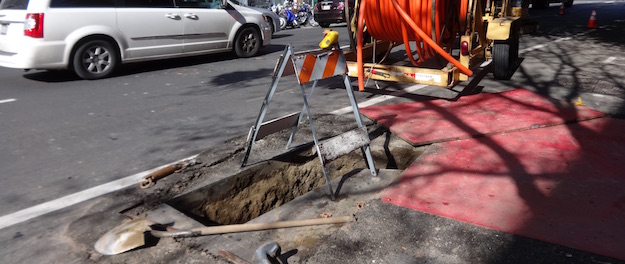Driverless car insurance offered with vague exclusions
![Ralf Roletschek [GFDL 1.2 (https://www.gnu.org/licenses/old-licenses/fdl-1.2.html) or FAL], via Wikimedia Commons](https://www.tellusventure.com/images/2016/7/tesla_autobahn.jpg)
A British company claims to be the first to offer driverless car insurance. In a commendably plain english document, the Adrian Flux insurance company offers to cover autonomous car owners against hacking, bad software and the operator’s failure to assume manual control, should it become necessary.
The one thing the policy doesn’t do directly is define “driverless car”. It has definitions for all kinds of things, including what “car” means (a passenger vehicle within certain weight limits that’s not designed to carry cargo or hold more than six people).… More

![By Clark, Joe, photographer, Photographer (NARA record: 8463821) (U.S. National Archives and Records Administration) [Public domain], via Wikimedia Commons](https://www.tellusventure.com/images/2016/7/rouge_river.jpg)
![By Anders (Own work) [Public domain], via Wikimedia Commons](https://www.tellusventure.com/images/2016/7/mobile_phone_evolution.jpg)
![Skywalker Ranch, By Mike McCune [CC BY 2.0 (https://creativecommons.org/licenses/by/2.0)], via Wikimedia Commons](https://www.tellusventure.com/images/2016/6/skywalker_ranch.jpg)



![By Doc Searls from Santa Barbara, USA (sanantonio_36.JPG) [CC BY-SA 2.0 (https://creativecommons.org/licenses/by-sa/2.0)], via Wikimedia Commons](https://www.tellusventure.com/images/2016/6/tv_tower.jpg)
![By BrokenSphere (Own work) [CC BY-SA 3.0 (https://creativecommons.org/licenses/by-sa/3.0)], via Wikimedia Commons](https://www.tellusventure.com/images/2016/6/att_park.jpg)
